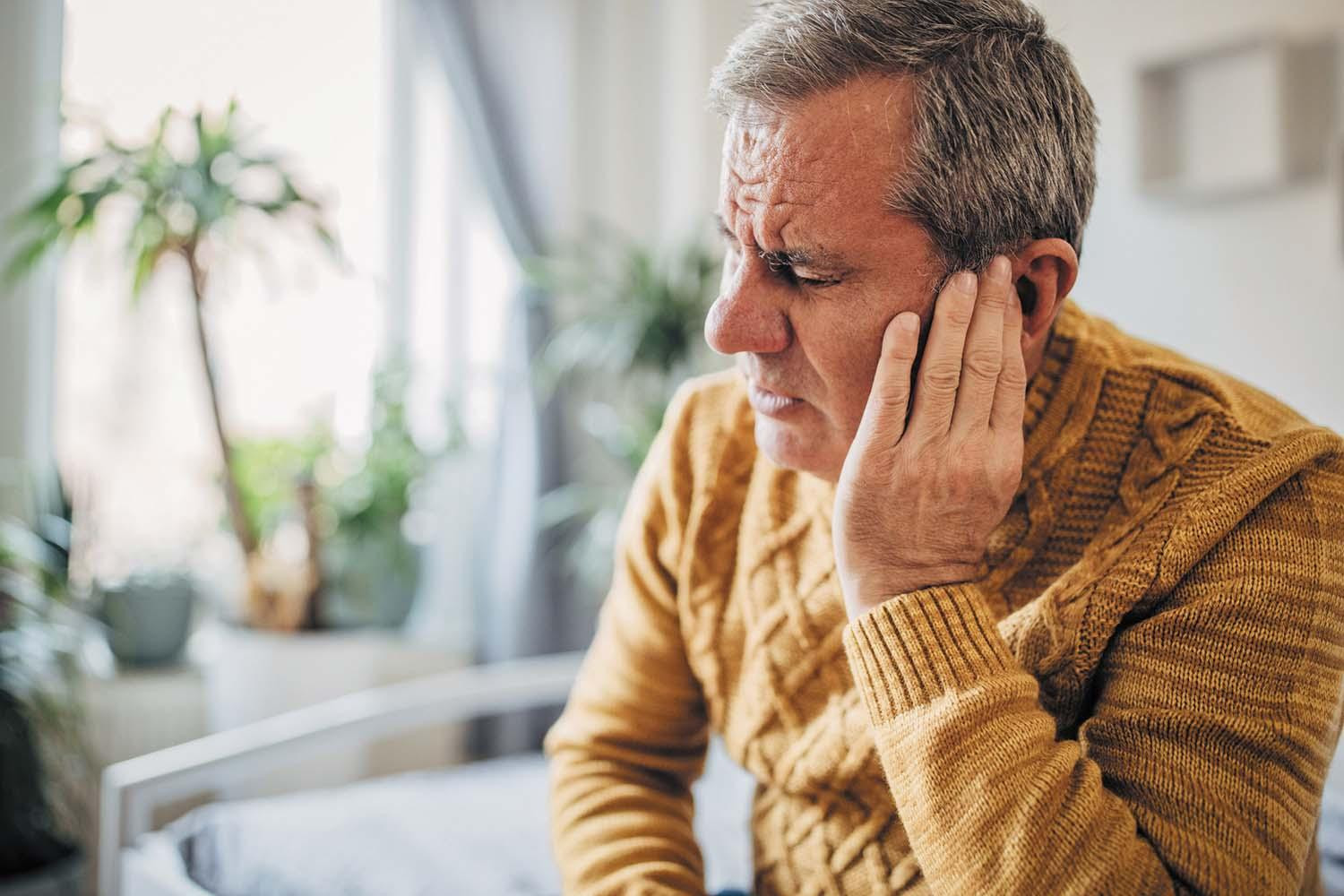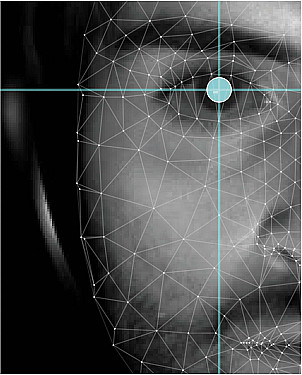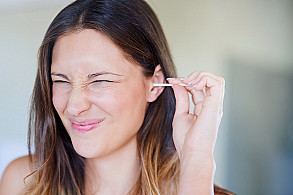Tips to cope when hearing hurts
Hyperacusis can cause ear pain and other physical reactions to everyday sound.
- Reviewed by Anthony L. Komaroff, MD, Editor in Chief, Harvard Health Letter; Editorial Advisory Board Member, Harvard Health Publishing

Many people become hard of hearing as they get older. But another common condition is less well recognized, and is almost the opposite problem: hypersensitivity to sounds such as someone’s voice or the shrill clang of a fork accidentally dropped on a plate. Sounds not only can seem louder than normal, they also can cause pain and upset you. The condition is called hyperacusis (pronounced “hyper-a-COO-sis”). “It occurs in up to 15% of the population, and it’s more common after age 50 in people with or without hearing loss,” says Meaghan Reed, director of clinical audiology at Harvard-affiliated Massachusetts Eye and Ear.
What is hyperacusis?
Hyperacusis describes sensitivity to some or all sounds, no matter the volume. The particular type of bothersome sound varies per person. So does the effect on the body, which is classified into several categories. For example, people with hyperacusis can experience
- sounds that are uncomfortably loud (loudness hyperacusis)
- sounds that cause pain in the ear, head, or another part of the body (pain hyperacusis)
- sounds that trigger negative emotional responses, such as fear (annoyance hyperacusis)
- sounds that set off dizziness or nausea (vestibular hyperacusis).
Hyperacusis causes
Experts don’t know exactly why sound sometimes leads to physical or emotional responses. “Some research suggests that it stems from tiny muscles in the middle ear that have become irritated or overactive,” Reed says.
Or it might be due to overactivity of the nerve fibers that carry hearing signals from the ears to the brain. This is similar to the production of phantom ringing or whooshing in the ears (tinnitus) that is audible only to you. In fact, hyperacusis often occurs with tinnitus.
When to call the doctor
Seek medical help for suspected hyperacusis when your reactions to certain sounds interfere with your daily life. Reed recommends starting with your primary care doctor, to rule out potential underlying conditions, and then seeing an audiologist or an ear, nose, and throat specialist (otolaryngologist).
There’s good reason to take action. “The problem with hyperacusis extends beyond discomfort,” Reed says. “The condition sometimes keeps people from being able to do certain tasks or engage socially. Social isolation has many serious health risks.”
Treatment
We have few effective ways to cope with hyperacusis. “Medication such as painkillers or anti-anxiety medications might help, but we don’t have a lot of strong research showing that it works, especially for painful hyperacusis,” Reed says.
But you might have success with some or all of the following strategies.
Avoid triggers. Anticipate ways to dodge sounds that heighten your hyperacusis symptoms. For example, cover a glass tabletop with a tablecloth (to diminish the ping of silverware accidentally falling on it) or ask friends and family members to lower their volume level when they speak.
Wear hearing protection. If you know you’ll be exposed to uncomfortably loud sounds, such as kitchen clean-up, you might wear earplugs or sound “earmuffs” (which dampen all noise around you). “But don’t wear ear protection all the time; that might worsen your sound sensitivity and lead to isolation and loneliness,” Reed warns.
Take your mind off of it. “Surround yourself with sound you find pleasant, such as rainfall or a fan at a volume you find comfortable,” Reed advises. Play the sounds on an audio device, use a sound machine, or listen to pleasant sounds while wearing earbuds or headphones (but limit how long you wear them).
Consider sound therapy. One type of sound therapy introduces you to loud sounds gradually, potentially dulling your reactions to them. Seek this therapy with an audiologist, particularly one who also works with people who have tinnitus.
Try cognitive behavioral therapy (CBT). A psychologist or licensed therapist trained in CBT techniques can help you redirect negative thoughts about hyperacusis to less stressful thoughts and emotions.
What about surgery?
Various surgeries for hyperacusis are reserved for extreme cases. There’s little evidence that they ease the condition.
If you’re interested, consult with an otolaryngologist who specializes in ear problems (an otologist or a neurotologist) who has performed surgery to relieve hyperacusis before. You’re most likely to find an expert who fits that description at an academic medical center.
Image: © Nes/Getty Images
About the Author

Heidi Godman, Managing Director
About the Reviewer

Anthony L. Komaroff, MD, Editor in Chief, Harvard Health Letter; Editorial Advisory Board Member, Harvard Health Publishing
Disclaimer:
As a service to our readers, Harvard Health Publishing provides access to our library of archived content. Please note the date of last review or update on all articles.
No content on this site, regardless of date, should ever be used as a substitute for direct medical advice from your doctor or other qualified clinician.
















